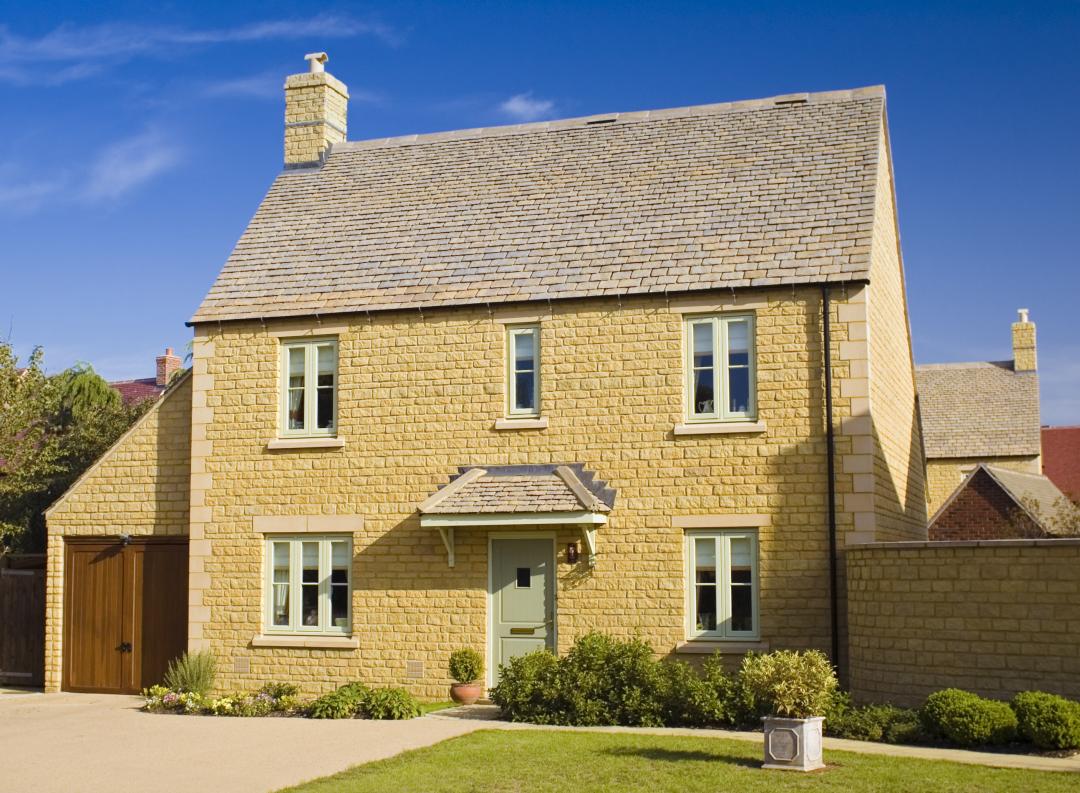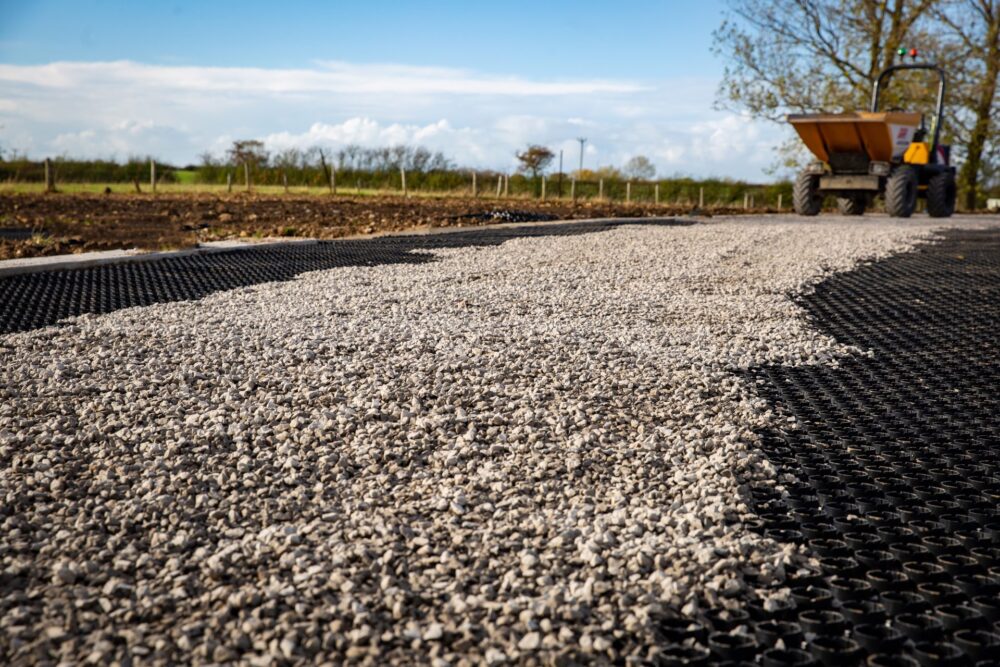When weighing up the best surface for a new driveway, a resin-bound or resin-bonded driveway may vie for your attention, alongside other finishes such as gravel driveway. But what’s the difference between a resin-bound driveway and a resin-bonded driveway? And what factors should be considered before making your final decision?
Resin-bonded driveways
A resin-bonded driveway is laid on a concrete or tarmac base. This base is coated with a resin mix, then scattered with gravel or stone before it sets to give the appearance of a traditional gravel driveway.
It’s notoriously difficult to lay, and if not done correctly or laid in the wrong weather conditions, it can result in a poor and patchy finish. Resin-bonded driveways are not permeable, so rainwater sits on the driveway. That means it can also get dirty quickly and need extra maintenance. Cracking and dips are commonplace in resin-bonded driveways, especially where the base surface is inadequate. What’s more, due to the iron oxide in the aggregate, rust patches may start to appear.
Resin-bonded driveways are often considered when a homeowner wants to achieve the look of a beautiful gravel driveway, but has concerns about gravel migration, rutting and instability. A Gravelrings gravel grid system overcomes these issues, however, creating consistent and stable gravel coverage. Laying a gravel driveway avoids the installation issues associated with resin-bonded driveways, with a perfect finish much simpler to achieve.
Resin-bound driveways
A resin-bound driveway is different from a resin-bonded driveway. In a resin-bound driveway, the resin is applied to both sides of the stone. With this method, the gravel stays set, and a smooth finish is achieved, like a screed. Its porous finish, unlike that of non-porous resin-bonded finishes, allows for water drainage. That means it stays cleaner and rust-free.
A resin-bound driveway may be considered by homeowners looking for a low maintenance driveway with good drainage properties. It’s a more expensive choice than resin-bonded, and complexities with installation can produce problems in the future if not done correctly. A traditional, loose gravel driveway creates a superior result with good drainage properties, especially when prepared with a suitable stabilising geotextile membrane and Gravelrings gravel retention system. See how these homeowners transformed their properties with gravel driveways laid using Beauxfort Gravelrings.
What’s the best driveway surface?
While there are pros and cons to a gravel driveway, it’s undoubtedly the finish associated with high-end homes. Resin-bonded and resin-bound driveways attempt to emulate the look of a loose gravel driveway, but poor drainage, the challenges of creating an excellent finish, and ongoing maintenance requirements make them a risky choice. While the properties of resin-bound driveways are better than those of resin-bonded driveways, they do not offer the same look and feel of a true gravel driveway, the low maintenance benefits or the satisfying crunch of stone under tyres as you arrive home.
Achieve the perfect gravel driveway with the Beauxfort Gravelrings system. Check out our website www.beauxfort.com for more information about the Beauxfort landscape systems and design inspiration, and to download the Beauxfort Distinctive Landscape Systems brochure and request a free sample. Or talk to our friendly team about your project by contacting us on 0330 055 2599 or info@beauxfort.com.



